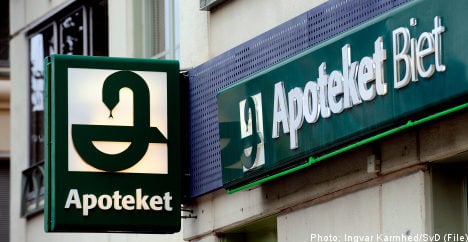At issue is the ownership directive put forward by Apoteket Omstrukturering AB, the parent company to Apoteket AB.
Health minister Göran Hägglund said that there is a difference of opinion between the board of the parent company and Apoteket AB.
“There have been different views between these boards, which isn’t so strange when you consider that there are a number of different issues to address, and that in some situations there can be different assessments and different conclusions. For my part, I don’t think there is any reason to make any more assessments than those already carried out by the restructuring company,” Hägglund told the TT news agency.
While the minister stopped short of saying that the government was firing the board of Apoteket AB, he didn’t deny that was the case.
“I wouldn’t be surprised by that headline even if I haven’t expressed myself that way,” he said.
Discussions between the board of the parent company and that of Apoteket AB have been ongoing since the summer. The Apoteket AB board learned of the new ownership directive last Friday.
“We’ve said no to the directive. We have objected in the sense that we refused to follow the instructions and directive we received. That’s the situation in reality,” said Apoteket AB board chair Per Båtelson to TT.
According to Båtelson, the board was unanimous in its view. He explained that the board had certain misgivings about how the directive treated the competition.
“I think it benefits our competitors in a way that is clearly iffy. It means micromanaging and putting limits on the company’s future growth which we can’t stand behind. The way they want to lock us in now would leave the company behind to such an extent that we won’t accept or be a part of it,” said Båtelson.
One of the measures affected by the proposed directive is Apoteket’s plans to have the Ica grocery store chain carry some of its products.
“We’ve had a planned partnership with Ica, which I can say now is more or less dead because we’re locked in until sometime into 2011 and Ica can’t wait so long,” said Båtelson.
A new board of directors for Apoteket AB will be chosen at an extra shareholders’ meeting to be held sometime in the near future.
The CEO of Apoteket, Stefan Carlsson, will remain at his post.
Apoteket Omstrukturering AB is owned by the state, with the health and social ministry acting as the principle owner.



 Please whitelist us to continue reading.
Please whitelist us to continue reading.
Member comments